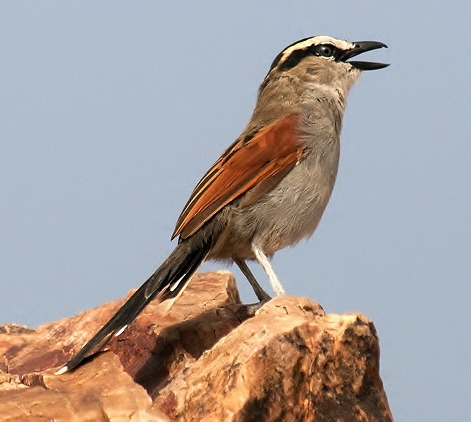 |
| Photo by Javier Falco (Salidún) |
Common name:
black-crowned tchagra (en); picanço-assobiador-de-barrete-preto (pt); tchagra à tête noire (fr); chagra del Senegal (es); Senegaltschagra (de)
Taxonomy:
Order Passeriformes
Family Malaconotidae
Range:
This species is found in sub-Saharan Africa, from the Sahel down to Angola, Zimbabwe and north-eastern South Africa, also from Morocco to north-eastern Libya and in the southern Arabian Peninsula, in Yeman, Oman and marginally into Saudi Arabia.
Size:
These birds are 19-23 cm long and weigh 35-55 g.
Habitat:
The black-crowned tchagra is mostly found in dry scrublands and savannas, but also in dry tropical forests, rural gardens, plantations and arable land. They are present from sea level up to an altitude of 3.000 m.
Diet:
They hunt insects and other invertebrates, pounding on them from a perch.
Breeding:
Black-crowned tchagras are monogamous and can breed all year round, varying between different parts of their range. They nest on a shallow cup, built in a scrub or small tree up to 2 m above the ground. The female lays 2-3 eggs, which she mostly incubates alone for 12-15 days.The chicks fledge 15-16 days after hatching. Each pair typically raises a single clutch per year.
Conservation:
IUCN status – LC (Least Concern)
This species has an extremely large breeding range and is described as local and uncommon in North Africa and uncommon to locally common in the rest of Africa. The population is suspected to be stable in the absence of evidence for any declines or substantial threats.







